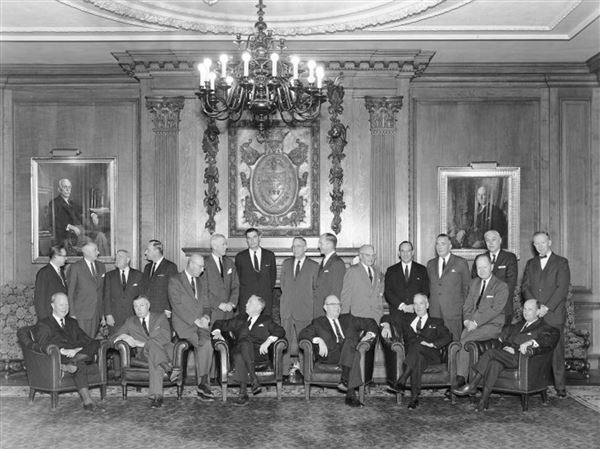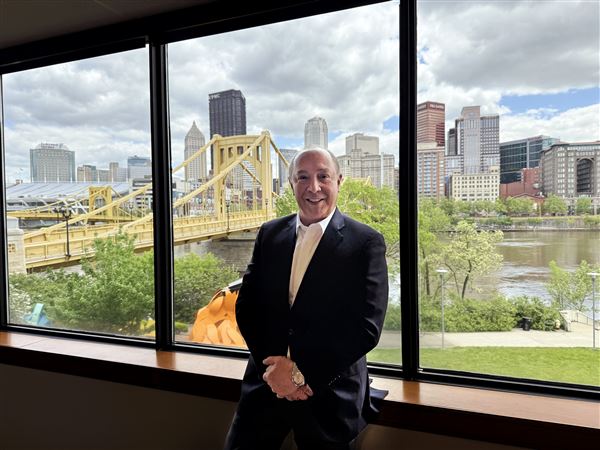Repeal the law of supply and demand.
I realize we're talking about a natural law, that in a free market prices rise when demand goes up and supply does not. But something must be done about Downtown parking rates!
Pittsburghers drive in daily from the South Hills, North Hills and hills their trolley-riding grandparents never knew. Tens of thousands squeeze into the same two-thirds-of-a-square-mile we call the Golden Triangle, or that other neighborhood that UPMC will allow us to call Oakland until the last of the paperwork goes through.
A huge slice of commuters can't ride public transportation because buses don't roll near newer developments, so cars cross bridges into man-made canyons, their drivers paying as much as $20 to turn off the engine. Some save a few dollars by enduring the indignity of parking in the concrete sea betwixt the North Side stadia or other fringe lots, riding into town on crowded little shuttle buses.
Into this seething cauldron of gas-fueled discontent comes a battle over the city parking tax. Suburban legislators intend to hold the city to its agreement to gradually drop the parking tax from 45 percent to 35 percent by 2010.
Trouble is that won't cut the cost of parking by a penny. Neither God nor Adam Smith's ghost intends to repeal the law of supply and demand. Thus a parking tax cut will only change the way parking fees are split.
If you pay $10 now to park your car, the owner of the space gets about $6.90 and the city $3.10. (Fractions of a cent are involved, but that's roughly a 45 percent tax on $6.90.) When and if the tax drops to 35 percent, the operator will take $7.41 and the city $2.59.
Why? For the same reason a dog scratches himself. Because he can. Because it's his nature.
Garages in the heart of town have been filling at current rates, and operators will keep charging all the market will bear. It would be un-American to not charge all one can for a service, even if that service only allows the buyer to get out of his car so he can earn enough to park a car.
It's hard to confront that truth. Councilman William Peduto called a news conference last week to say the Pittsburgh Parking Authority should cut rates by 12.5 percent over the next two years.
Trouble is the parking authority controls only about 25 percent of parking spaces; it already charges less than private operators; and most of its garages fill quickly. A greater discount may only mean commuters will need to get to work earlier to snag cheaper spaces.
Alco Parking operates about 12,000 to 15,000 spaces around the Golden Triangle, and its president says a cut in parking authority rates won't move his.
"That only makes sense when there's an oversupply and an operator is competing for business," Merrill Stabile, president of Alco Parking, said. If city garages fill up by 8:30 a.m., "why would I want to lower [my rates]?"
Mr. Stabile pledges to keep his rates where they are only if the tax drops. All rates soared when the parking tax jumped from 31 percent to 50 percent in 2004. That scared some drivers off for a while. But, he said, "there is a shortage of parking once again. Demand has finally caught up with supply."
It's all about supply in Pittsburgh, or the lack thereof. An Allegheny Institute study in 2002 reported that Downtown workers in peer cities Baltimore, Denver, Charlotte and Cincinnati have an average of 50 percent more parking spaces per worker.
It could be ironic if the much-derided $440 million North Shore Connector helps here. Mr. Stabile said that will connect fringe parking to a more expensive area "like a horizontal elevator."
The parking authority intends to open a 1,050-space garage at 11th Street and Liberty Avenue, alongside a new Greyhound Bus Terminal, early next year, too. That should help. So should that guy I saw skateboarding to work the other day, assuming he's a trendsetter.
Mr. Peduto's plan pays attention to the demand side by shifting about $2 million a year from parking tax revenues to the Port Authority beginning in 2010, capital investment to help build "world-class transit."
But not since President Gerald Ford's "Whip Inflation Now" speech in 1974 has any politician tried to take on the law of supply and demand itself. Anybody still got their "WIN" buttons?
Me neither.
First Published: October 4, 2007, 4:00 a.m.














